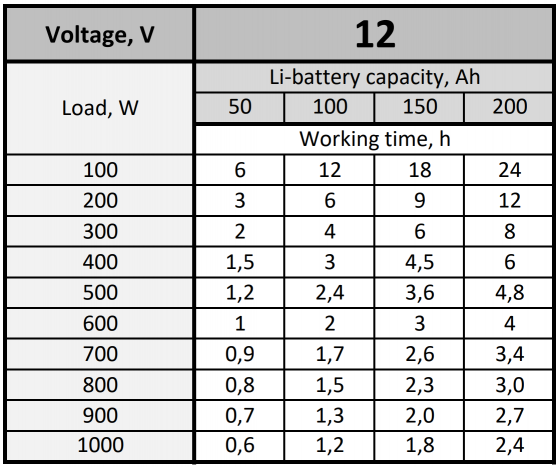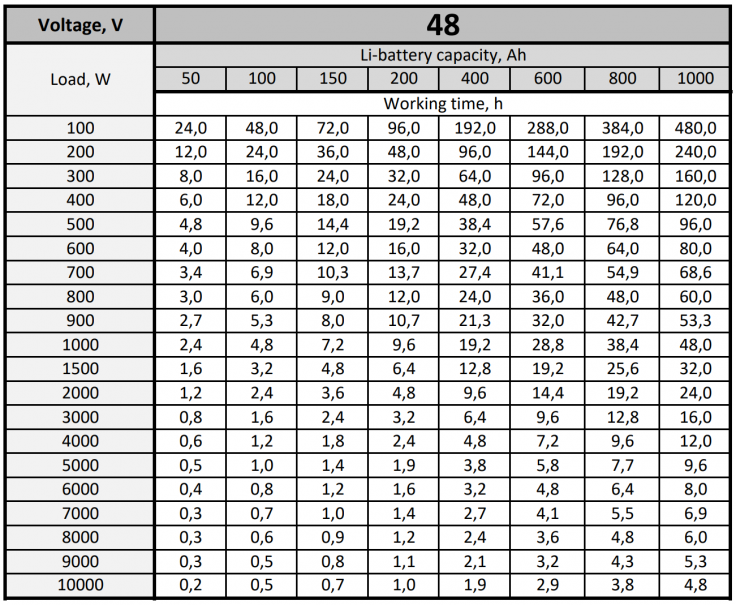Due to power outages, it is very often necessary to install batteries to provide the necessary power to critical equipment (refrigerator, gas boiler, heat pump, lighting, alarm).
The first thing the consumer faces is the calculation of the duration of the battery.
How long the battery will last depends on:
– battery type;
– nominal capacity;
– Rated voltage;
– connected load.
The market is full of a large selection, but Li-batteries are the most optimal in use.
Li-batteries are a new generation of batteries that are widely used in the modern world.
The advantages of this type of battery are:
– Possibility of low discharge;
– characteristics of high current output;
– extended service life due to the large number of charge-discharge cycles;
– reduced dimensions in comparison with lead-acid;
– do not demand service.
When batteries are connected in parallel, the capacity is summed up.
When batteries are connected in series, the voltage increases.
It is advisable to collect the batteries in series so that the current does not increase.
Deep discharge can completely destroy the battery. Also, do not charge batteries with a current higher than that specified by the manufacturer.
Discharging to a maximum of 20% of capacity is desirable to extend battery life.
Due to the high sensitivity conditions of lithium batteries, quality chargers must be selected.
* Battery charge time :
t charge \ Battery capacity (Ah) / I max charge. UPS (A)




